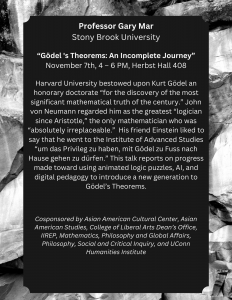Rashed Ahmad
In assessing different logics, we appeal to the theoretical virtues the logics may enjoy. These theoretical virtues include (but are not necessarily limited to) expressive power, generality, topic-neutrality, simplicity, elegance, and adequacy to the data. In terms of expressive power and generality, Jonathan Erenfryd and I argued in Classical Logic of Paradox (manuscript) that CLP can accommodate naive theories of truth, validity, and paradoxicality without the threat of revenge and metainferential paradoxes, nor of overinternalization of semantic concepts. Additionally, in Issues of Overinternalization: ω-inconsistency (manuscript), I show that first-order CLP can accommodate a theory of (standard) arithmetical truth, and that theory is ω-consistent. These results stand witness to CLP’s expressive power and generality. However, for a logic to be general, it must also be able to accommodate other theories, such as queer feminist and liberation theories. In this paper, we nominate CLP as a good candidate for serving as the basis of a theory of liberation. Before doing so, however, we argue that, given the analysis of Val Plumwood’s argument that classical logic creates a natural hotspot for dualisms that promote oppression, there is a tight relation between theories of liberation and theories of vagueness. So, for a logic to even qualify as a basis for a theory of liberation, it must first be able to be a basis for a theory of vagueness. Thus, we first show how CLP handles vagueness, then present and defend Val Plumwood’s argument against classical logic, and show that classical logic is neither topic-neutral, simple, nor elegant. Finally, we show how a theory of liberation built on CLP fares compared to other proposals in the literature.
